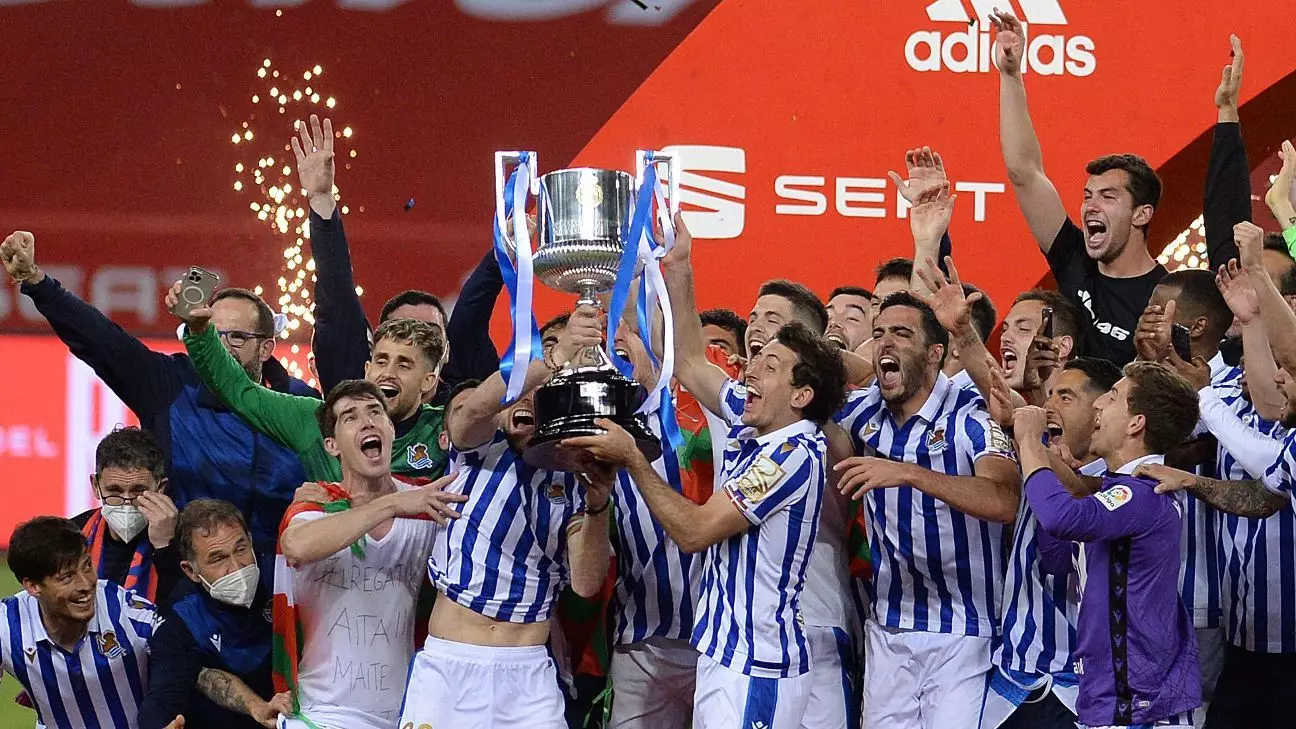Real Sociedad, the prominent football club based in the Basque Country, has recently disclosed a significant change in its management team. The announcement that Roberto Olabe, the highly regarded Director of Football, will exit the club at the conclusion of the season marks the end of a noteworthy chapter in the club’s history. Although Olabe had a contract that extended until June 2026, he has decided to step down a year earlier, leaving a substantial gap in the club’s strategic leadership.
Roberto Olabe’s journey with Real Sociedad has been extensive and multifaceted. After concluding his playing career as a goalkeeper in 1999, he remained integral to the club, undertaking various roles, including coaching positions within the youth and senior teams until 2002. His return to the club as Director of Football was characterized by a sharp eye for talent and strategic acquisitions that notably enhanced the team’s competitiveness in La Liga. Under his stewardship, the club navigated successful transfers, solidifying its position in a highly competitive landscape.
A prime example of Olabe’s acumen can be seen in the acquisition of Alexander Isak in 2019 for just €15 million from Borussia Dortmund. This deal proved to be astute, as Isak’s value skyrocketed, leading to a substantial €70 million transfer to Newcastle United in 2022. Such successful ventures not only highlight Olabe’s skill in player negotiations but also the forward-thinking strategy he implemented during his tenure.
In light of Olabe’s departure, Real Sociedad has appointed Erik Bretos to assume the role of Director of Football starting next season. Bretos faces the daunting challenge of continuing the work Olabe started, especially considering the lofty expectations from both the fans and the board. The transition in leadership brings an opportunity for a fresh perspective on talent acquisition and club development, which could be pivotal in maintaining the club’s momentum.
The timing of this transition is significant, particularly in the context of ongoing transfers and the broader landscape of football management. Arsenal’s interest in Olabe underscores the increasing demand for experienced sporting directors who can navigate complex market dynamics. Following the resignation of Edu Gaspar, Arsenal’s pursuit of Olabe adds to the intrigue surrounding his future, presenting an opportunity for him to expand his influence further in the footballing world.
As Real Sociedad prepares for life without Olabe, the club must reflect on the strategies that propelled it into the upper echelons of Spanish football. The future will likely be shaped by Bretos’ ability to build upon Olabe’s legacy while introducing innovative approaches to recruitment and team development. This leadership change not only influences Real Sociedad but also sends ripples throughout the footballing community, where the impact of proficient sporting directors is increasingly recognized.
Real Sociedad faces a pivotal moment as it transitions into a new era, one that will require adaptability, vision, and strategic foresight. With Erik Bretos at the helm and the foundation laid by Olabe, the club has the potential to continue its ascent in the competitive world of football.

Leave a Reply